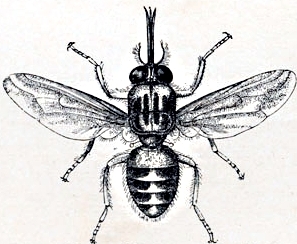 Arthropods such as insects can be devastatingly efficient pests and disease vectors, posing significant challenges to the agricultural and medical communities. Pesticides used to be a common solution to dealing with pests but, with more stringent environmental regulations on pesticides and increasing pest resistance to the chemicals, new solutions are required.
Arthropods such as insects can be devastatingly efficient pests and disease vectors, posing significant challenges to the agricultural and medical communities. Pesticides used to be a common solution to dealing with pests but, with more stringent environmental regulations on pesticides and increasing pest resistance to the chemicals, new solutions are required.
Many arthropods have evolved a symbiotic relationship with bacteria and this association could potentially be exploited to control pests and disease vectors. This biological control approach, called symbiont-based control strategies, would be preferable to chemical controls due to their lower environmental impact.
 In order to exploit the arthropod- bacterial symbiosis, more knowledge of the relationship is required. BMC Microbiology has published a supplement – Arthropod symbiosis: from fundamental studies to pest and disease management consisting of the latest interdisciplinary research in this field. The articles in the supplement look at bacterial symbiosis with pests such as the Anopheles mosquito that spreads malaria, tsetse fly that spreads sleeping sickness and the cereal weevil that devastates cereal crops.
In order to exploit the arthropod- bacterial symbiosis, more knowledge of the relationship is required. BMC Microbiology has published a supplement – Arthropod symbiosis: from fundamental studies to pest and disease management consisting of the latest interdisciplinary research in this field. The articles in the supplement look at bacterial symbiosis with pests such as the Anopheles mosquito that spreads malaria, tsetse fly that spreads sleeping sickness and the cereal weevil that devastates cereal crops.
Currently in their initial stages of development, symbiont-based control strategies have the potential to increase global health and food resources by removing arthropod disease vectors and agricultural pests.
Comments